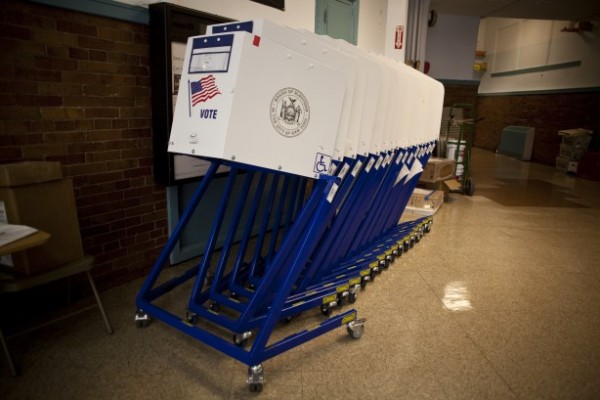5 Important Election Reform Measures Considered in CA Legislature


This week, California legislators in both chambers had their last opportunity to vote on bills and give them a chance at being passed during the current session. A number of election-related bills were up for a vote, some passing while others did not make the cut.
Bill restricting the use of paid signature gatherers to qualify a ballot initiative passes
On May 29, the Assembly passed AB 857, sponsored by Assemblymember Paul Fong, which creates new requirements for the use of paid signature gatherers to qualify a ballot initiative. The bill will now go to the Senate.
In order to qualify a measure for the ballot, AB 857 would require at least 20 percent of the signatures be gathered by unpaid volunteers. The bill would also make it easier for the public to distinguish between a paid and unpaid signature gatherer by increasing disclosure requirements.
Bill allowing non-US citizen to work at polling locations
AB 817, sponsored Assemblyman Rob Bonta, would allow up to 5 non-US citizens to volunteer at a polling station. The volunteer would need to be a legal, permanent resident in the US.
The goal of this bill is to help increase the number of multilingual election workers in California as required by the federal government. About 3 millions Californians are not fluent in English and having more multilingual pollworkers would help them make a more informed choice on Election Day, according to Bonta's website.
Senate approves the modernization of California’s voter registration system
SB 361, sponsored by Senator Alex Padilla, "would require the office of the California Secretary of State to maintain an accurate statewide voter registration database and allow voters to check their registration status, the status of their absentee ballot or the status of their provisional ballot online."
According to a Pew Research Center survey, California ranks 48 out of 50 in terms of election administration. In the age of the Internet, Padilla believes modernizing California's elections will strengthen the state's democracy.
Internet Voting Pilot Program bill stalls in Assembly
Assemblymember Philip Ting proposed AB 19, a bill that would have created an Internet voting pilot program in California. The bill proposed changing the current definition of voting system to include electronic voting systems connected to the Internet.
The bill would have also created an Internet voting pilot program under which counties interested in testing online voting could have made a request to the secretary of state to test such programs.
Constitutional Amendment to restrict primary write-ins defeated in the Assembly
ACA 9, supported by Assemblymember Jeff Gorell, was defeated in the California Assembly on May 29. The constitutional amendment would have required write-in candidates receive a minimum number of votes to go on the November ballot. The amendment would have also had to be approved by voters in 2014 before becoming law.
Under the new top-two primary system, the two candidates who receive the most votes in June move on to the November ballot. Under the system, a number of write-in candidates in uncontested races finished second and appeared on the 2012 November ballot after receiving less than 10 votes.
The amendment would require that they receive approximately 2,300 for U.S. House, 3,000 for state Senate, 1,500 for Assembly, and 120,000 for statewide offices to make it to the November ballot.



